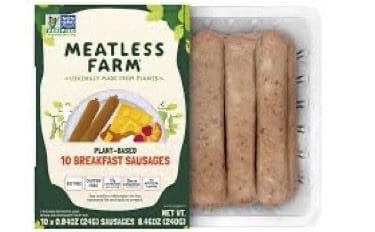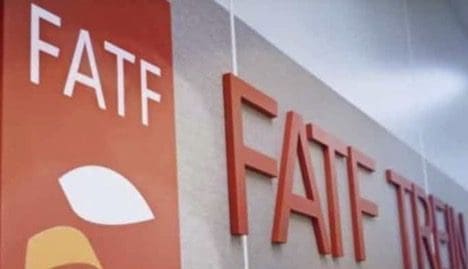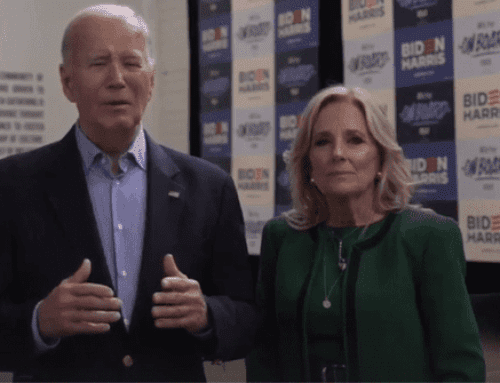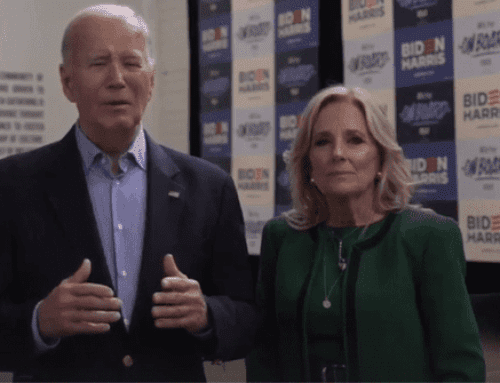

Renaming vegan products to protect meat and dairy industries
As I predicted, the vegan and vegetarian charlatans have launched legal action to thwart the government’s efforts to protect consumers from confusion, and the meat and dairy industries from unfair competition.
Not two months ago, I wrote about the grave threat posed to the average consumer by the sale of ‘vegan nuggets’ and ‘vegetarian sausages’.
A government bureaucrat, Billy Makhafola, the executive officer in charge of agricultural product standards, was alerted to the deliberately misleading names by processed meat producers. With great alacrity, he got in the way of the duplicitous vegan and vegetarian industry.
He declared their faux-meat-themed products to constitute unfair competition to honest processed meat producers. They could, he argued, reasonably be expected to confuse innocent consumers who want their nutrition red in tooth and claw.
The veggie-mad swindlers whined so annoyingly that the Department of Agriculture and Various Other Worthy Things had to threaten an outright ban on vegetarian and vegan products.
Would that they had followed through on the threat, saving us from meat counterfeiters forever, because things are rapidly going downhill for brave Makhafola.
Big Vegetable
I noted several loopholes in the regulations, such as the fact that nowhere are processed meat product names explicitly prescribed and reserved for the exclusive use of products made of real processed meat, nor do the regulations prescribe ‘distinctive marks’ for such products that are being violated by abominations like veggie burgers and mushroom biltong.
These glaring errors would, I warned, be exploited by greedy vegan and vegetarian food interests who do not care about the profits of the processed meat industry.
Now, it has come to pass. The Consumer Goods Council of South Africa, a front organisation for Big Vegetable, has taken the government to the High Court to interdict it from seizing plant-based foods that are marketed with names derived from processed meat products.
Confusing adjectives
Shills for the meat cheaters claim that there is no evidence consumers are confused by their scammy product names. They ought to be corrected: the absence of evidence does not imply evidence of the absence of consumer confusion.
Adjectives are inherently confusing. Many people don’t even know what adjectives are, so claiming that terms like ‘plant-based sausage’ do not cause confusion is quite a reach. There’s even a hyphen there, the presence of which 95% of ordinary consumers would be at pains to explain.
One of the chiselers, who sells fake burgers, says his product name, Beyond Meat plant-based patties, is not confusing, especially since the product is extraordinarily expensive.
The thing is, that name could quite literally mean ‘bullshit’, which is a plant-based patty that invariably lies some distance beyond beef cattle. If I cannot be sure whether I’m going to get delicious dead cow or a steaming pile of cattle dung, I’m definitely going to call that confused.
The slick operators in the veggie industry now complain that they’ll have to change their packaging, that they can’t import products because of legal uncertainty, and that they, or their retailers, will lose money if their fake meat products are confiscated.
As if the swindlers don’t have it coming for trying to compete with good old-fashioned high-fat high-salt cancer-causing processed red meat products. If it was good enough for grandpapa, who died at 67 of a heart attack, it is surely good enough for today’s spoilt generation.
Peanut butter
In the Daily Maverick’s coverage of the affair, an obvious Big Vegetable co-conspirator writes: ‘According to this unfathomable logic, even fruit and soya mince, peanut butter, coconut milk and vegetarian burgers will have to be relabeled.’
That ‘mince pies’, a traditional English Christmas pastry, turned out to be made of fruit and were sweet, not savoury, was one of the more traumatic discoveries of my childhood. I’m all for renaming them to something like ‘orange rind and other sickly-sweet kitchen refuse disguised as a treat to make people fat’.
Peanut butter, too, turned out not to be butter at all. It isn’t even a dairy product. I’d have proposed that it should be rebranded as peanut grease to prevent confusion, but the automotive lubricants industry might, quite rightly, get litigious about that.
Having consulted a thesaurus, the best available name for it would be ‘peanut unction’.
Except that peanuts are not nuts, so this constitutes unfair competition against the nut industry. To clear up that confusion, Makhafola’s food police should require that it henceforth be known as ‘goober unction’.
Milkshake foam rules
The Daily Maverick’s reporter is wrong about ‘coconut milk’, however.
In South Africa, foods have to comply with explicit regulations and standards before they may be sold. The Agriculture Department maintains lists of what may and may not be sold, and with what standards food products must comply. If it isn’t on Billy Makhafola’s list, it is contraband.
These rules protect consumers from grave dangers. If the foam on your milkshake does not last at least 30 seconds, for example, government regulations say it is illegal to call it milkshake (see regulation 5(3)(a)).
Maas may be called amazi or amasi, and kefir may be called kephir, but definitely not kefier (see regulations 6(2) and 6(3)).
A long list of approved cheeses comes complete with minimum and maximum milk fat content, minimum dry matter content, and minimum ripening period. For some, pH value, maximum salt content and protein content are also specified.
If a cheese isn’t on that list, then it must comply with specific fat, dry matter and moisture content rules. This protects consumers from reckless innovation by mad cheesemakers, who might be tempted to surprise unwary cheese-eaters by making new-fangled cheeses whose delicious taste masks the cruel fact that they unfairly compete with gouda, cheddar and Melrose cheese spread.
If it weren’t for diligent public servants like Makhafola, South African consumers might have been exposed to loathsome horrors such as the plasticine parody known as American cheese.
Imitation products
Although the meat regulations do not make provision for imitation meat products, which means vegan or vegetarian meat analogues are entirely illegal, the dairy regulations actually do make provision for imitation dairy products.
Among them are plant-based milks, such as almond or coconut milk, and non-dairy creams such as coconut cream. Cocoa butter, like peanut butter, is not permitted.
Notably, the dairy regulations provide for imitation products to use the class name of the imitated product (such as ‘milk’, ‘cream’ or ‘cheese’, with the addition of adjectives such as ‘dairy-free or non-dairy’.
This, of course, is a travesty. It means that abominations such as Cremora violate no regulations at all, and could ambush unwary consumers around every turn.
The dairy industry rightly objects to this gross appropriation of their own terms. It introduces exactly the sort of confusion Makhafola and his bureaucratic minions are trying to eliminate from the imitation meat market. Allowing adjectives like that is the road to anarchy.
Vexatious litigants on behalf of Big Vegetable could argue that their imitation meat products ought to be permitted with modifying adjectives, just like imitation dairy products are permitted with adjectives that indicate they’re not made from real dairy.
Imagine the confusion that would cause!
Distinctive names
Better that the anti-meat nutcases are forced to develop distinctive names of their own.
Mushroom biltong, one of the terms Makhafola took issue with, could be renamed shriveled fungus.
Vegan BBQ ribs would be better described as herbaceous charring rods.
Vegan nuggets could be termed shrubbery globs.
Vegetarian sausages would be far less confusing if they were called phyto-phalloids.
We are indeed blessed to be served by tireless defenders of consumer rights like Makhafola, who is the only thing standing between us and being bamboozled by the insidious marketing of Big Vegetable.
Pass the goober unction, will you?









